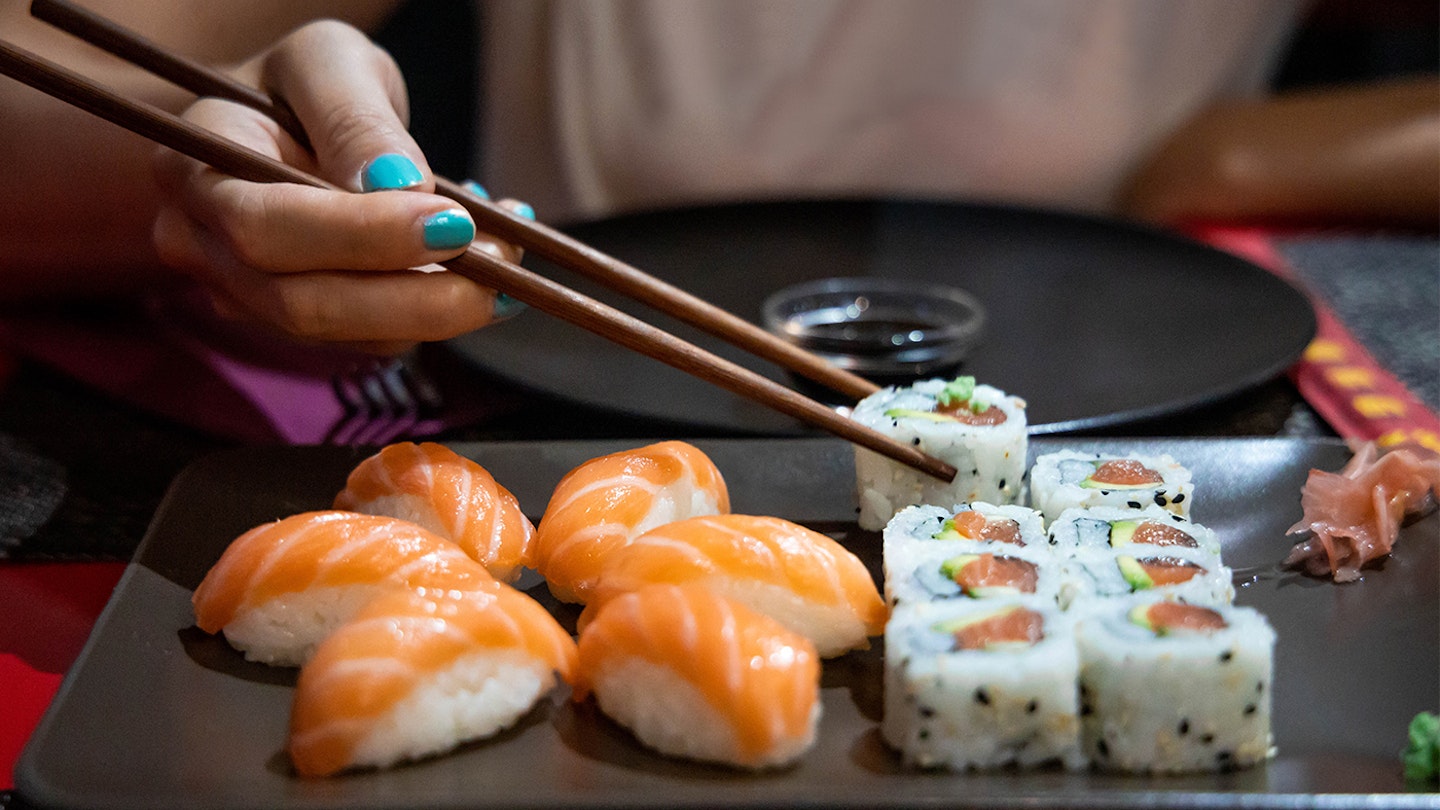You're no doubt used to having to avoid certain food while pregnant but one food that can leave many of us confused is sushi.
This popular Japanese dish combines vinegared rice with a variety of ingredients, such as seafood, often raw, and vegetables. But is it safe to enjoy during pregnancy?
Can I eat sushi while pregnant?
The good news is that yes, you can! There are however some caveats that you should be aware of.
You should only eat sushi when:
• It is made from raw or lightly cooked fish that has previously been frozen.
• It has been made with cooked fish, shellfish or vegetables.
When isn't it safe to eat sushi while pregnant?
If the sushi is made with raw fish that hasn't been previously frozen, you should not eat it. This is because it may contain anisakis worms which are small parasitic worms which are usually killed during the frozen process.
Should you become infected, you might develop a parasitic infection, anisakiasis which can make you very ill and affect both you and your baby.
How to make sure the raw fish in your sushi is safe
Food safety regulations in the UK require that raw fish is frozen by lowering the temperature in all parts of the product to at least either:
–20°C for no less than 24 hours
–35°C for no less than 15 hours
These freezing requirements apply to all food businesses that place fish and fishery products on the market such as restaurants and shops.
While restaurants that make their own sushi should have frozen any raw fish, you may like to speak to staff beforehand to double-check.
Other fish you can eat while pregnant
Fish is a fantastic source of protein but the NHS recommend that you should eat no more than two portions of oily fish (such as salmon, trout, mackerel or herring) a week. You should also eat no more than two tuna steaks (about 140g cooked or 170g raw) or four medium-size cans of tuna (about 140g when drained) per week.
While you should avoid swordfish, marlin, shark and raw shellfish, you can still safely tuck into the following:
•Cooked fish and seafood
• Cooked shellfish, such as mussels, lobster, crab, prawns, scallops and clams
